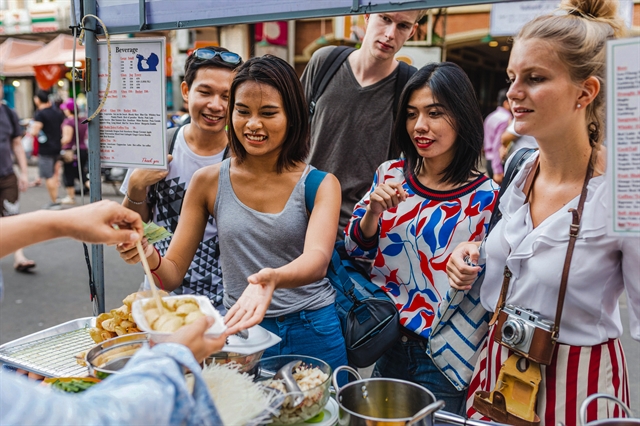 Life & Style
Life & Style

 |
| Traveling more sustainably remains important for most foreign and Vietnamese travelers. -- Photo Courtesy of Booking.com |
HCM CITY – A noticeable evolution in traveller awareness, preferences and priorities, in which traveling more sustainably remains important for most Vietnamese travelers, was found at the 10th edition of its annual Travel & Sustainability Report recently released by Booking.com.
The annual Travel & Sustainability Report offers insights into consumer attitudes and intentions regarding the social and ecological impact of travel. With insights from 32,000 travellers in 34 countries including Việt Nam, amid growing discussion of the impact of tourism on destinations, the research shows a shift in travel perceptions of what sustainability encompasses.
The focus recently has moved beyond just environmental impact to also include meaningful contributions to local communities and ecosystems. Many habits related to waste reduction and energy consumption have become increasingly mainstream and remain the top choices when travellers think of influencing the impact of their trips. This year’s research shows that behaviours relating to community and economic impact now sit alongside these environmental choices, the company said.
This year, traveling more sustainably remains important for most Vietnamese travelers, about 96 per cent, and a remarkable 99 per cent say they want to make more sustainable travel choices and to some extent have done so.
Travelers are consciously considering ways they can minimize the impact of the destinations they visit, whether that’s seeking advice on travel at other times of the year or visiting alternative destinations to avoid overcrowding.
For the first time, more than two-thirds of Vietnamese travelers, 69 per cent, are now conscious of travel’s impact on communities as well as the environment, and 83 per cent now want to leave places better than when they arrived.
The research takes a community-centric lens this year. Asking respondents not just how they travel but how they also experience inbound visitors where they live, this approach sheds light on the benefits and challenges of tourism from their perspective as both travellers and locals.
The report reveals that while 77 per cent of Vietnamese travellers feel that tourism has a positive impact overall on the place where they live, adjustments are needed so that destinations can grow at a healthy pace and continue to be enjoyed by all.
Varun Grover, country head, Vietnam at Booking.com, said, “In Vietnam, we’re seeing a growing awareness among travelers, not just about their own experiences, but also the impact their journeys have on local communities. With nearly 83 per cent of Vietnamese travelers wanting to leave the destinations better than when they arrived, the travel industry has a clear opportunity to support this mindset through infrastructure, guidance and ongoing innovation.”
While Vietnamese travellers acknowledge challenges such as traffic congestion and littering, they also favour community investment—such as better infrastructure and environmental conservation—over limiting tourist numbers, reflecting their broader desire for culturally respectful, locally beneficial travel experiences.
Some 49 per cent of Vietnamese travelers believe there is the right amount of tourism where they live, and as residents they highlight some of the common challenges they face related to tourism including traffic congestion, littering, rising cost of living and overcrowding.
Despite these concerns, only a small number, about 17 per cent, believe that capping the number of tourists in their home destination is the answer.
Instead, they emphasise the need for investment in their communities with improved waste management, improved transportation, and environmental conservation identified as the top types of support they’d like to see.
Research commissioned by Booking.com and independently conducted among a sample of 32,000 respondents across 34 countries and including 1,000 from Việt Nam. – VNS




